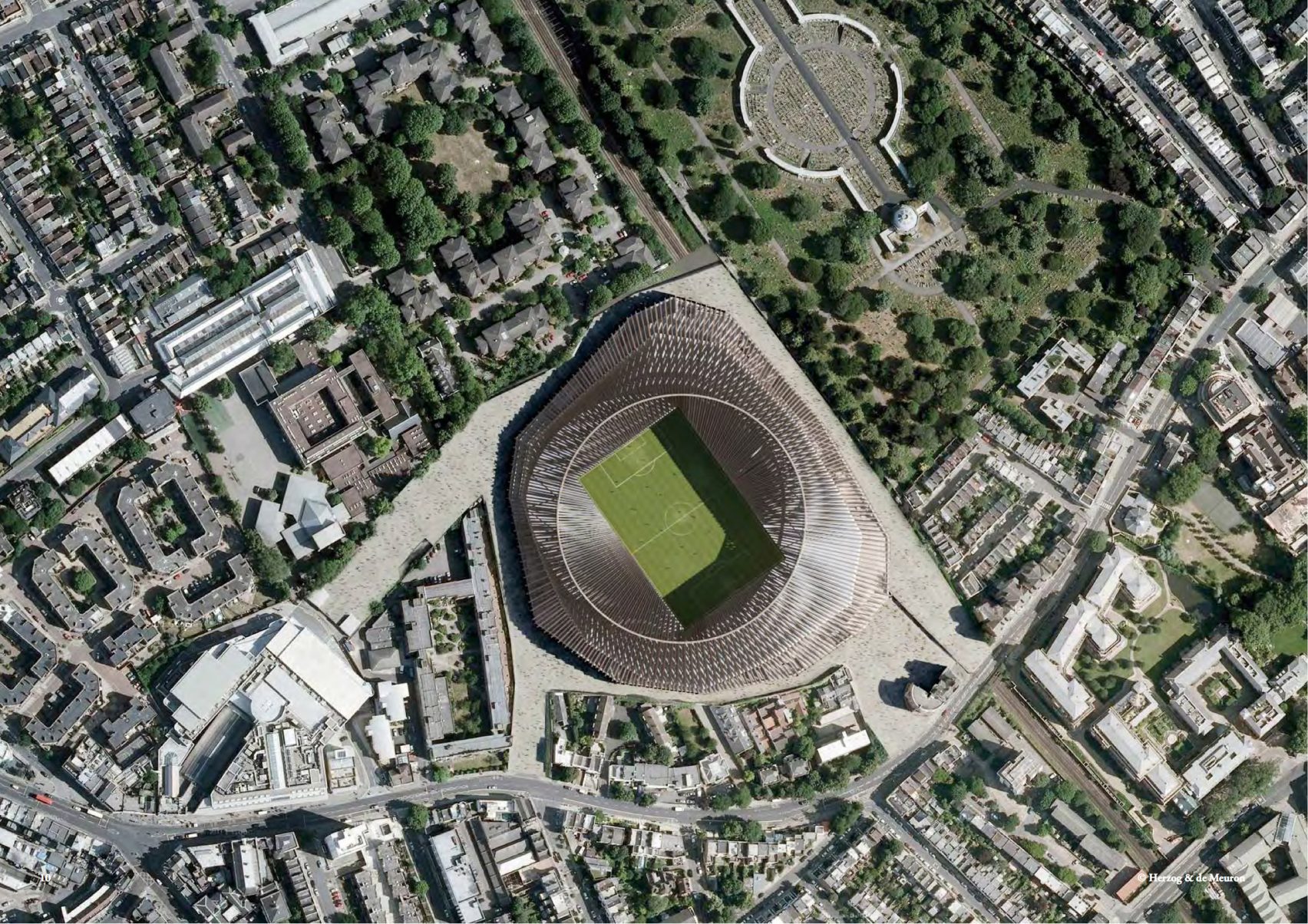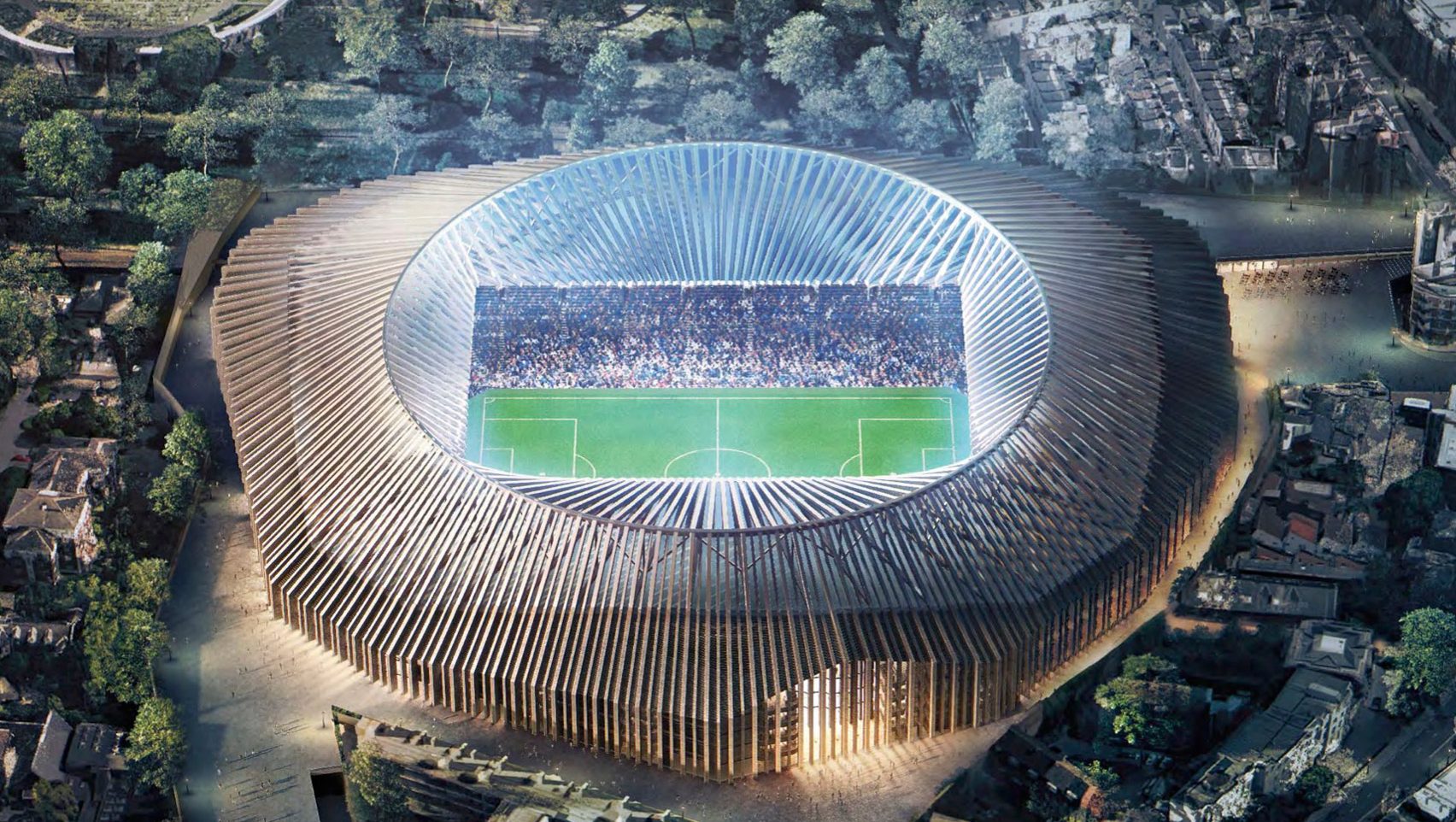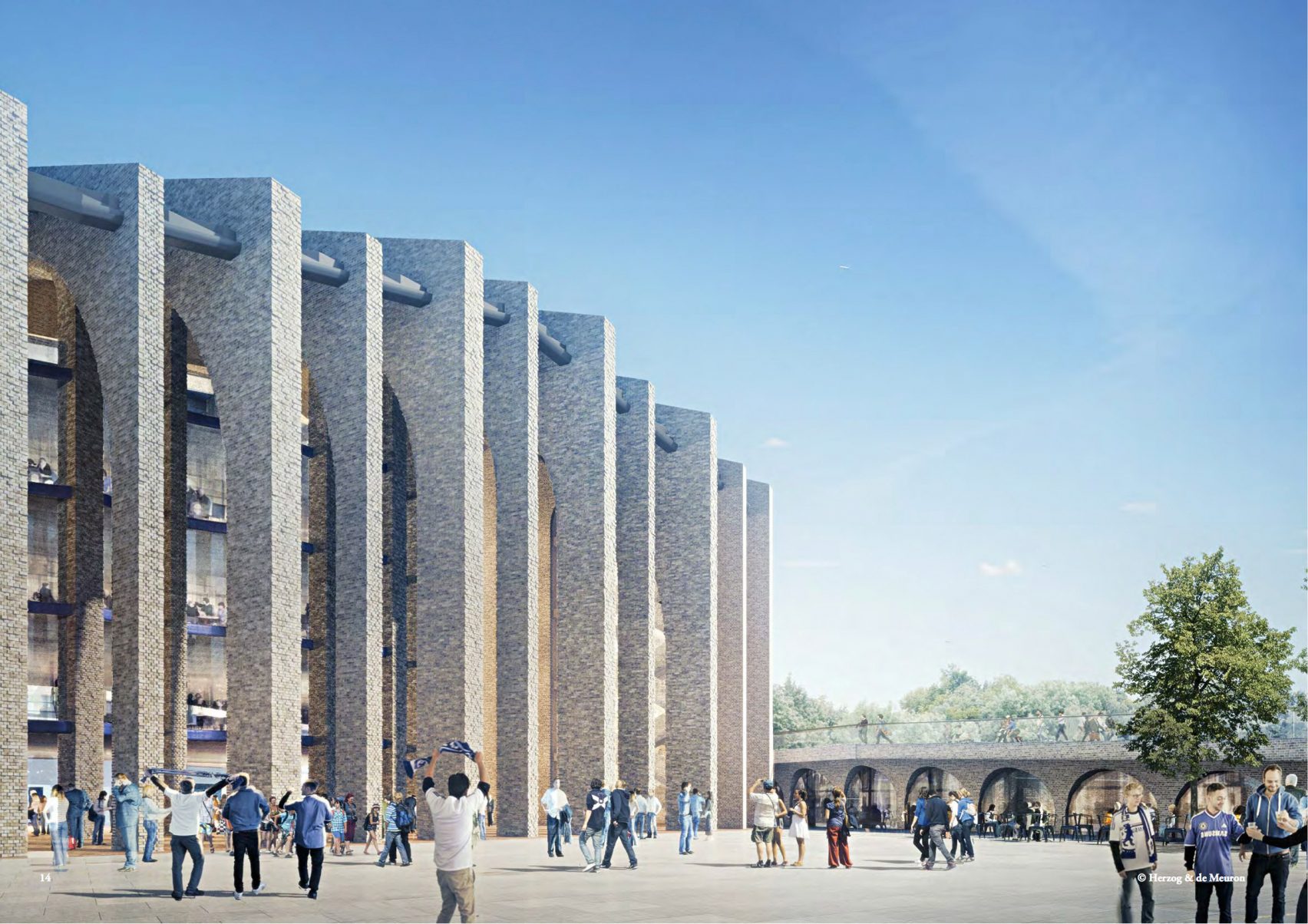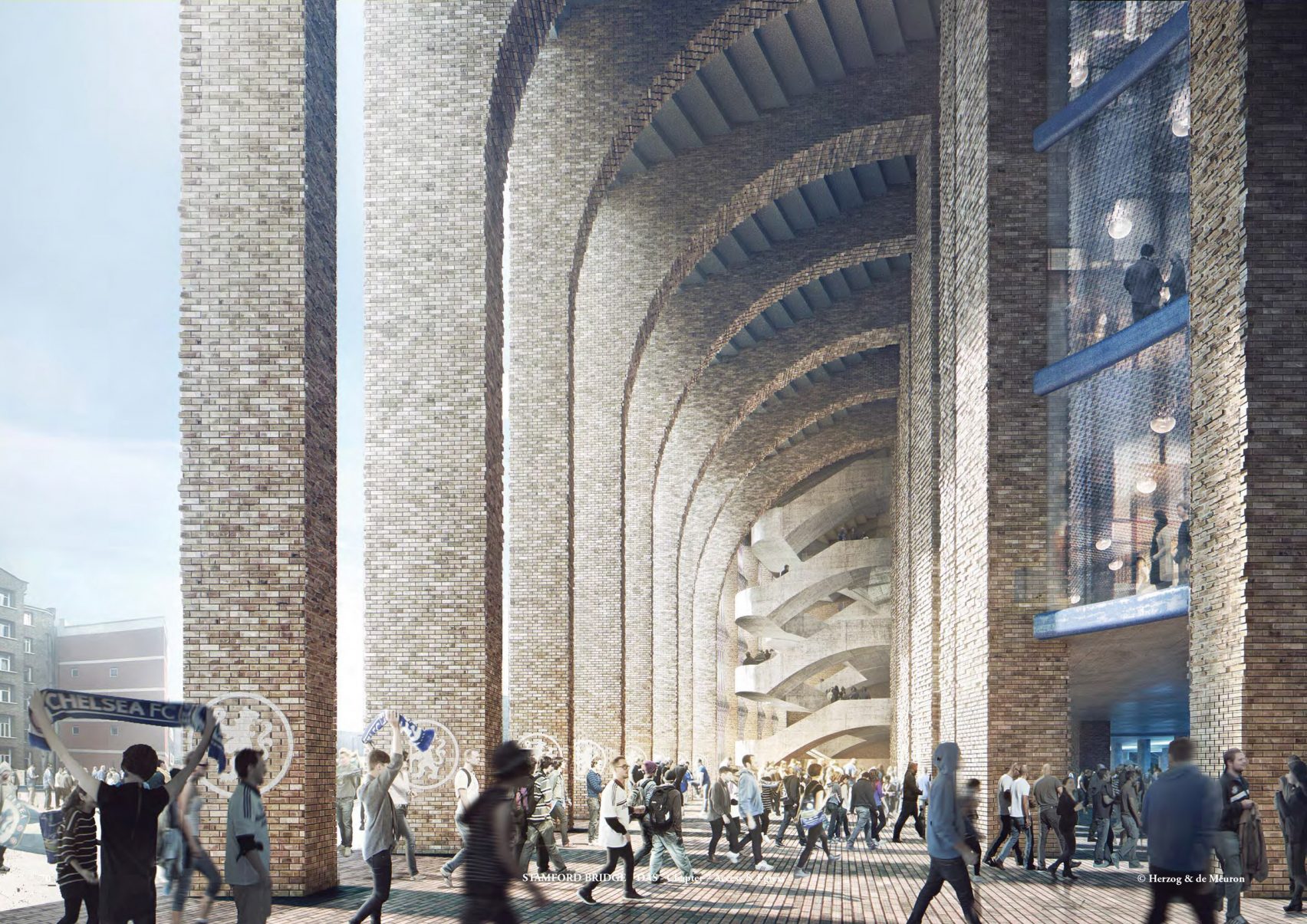Although Herzog and de Meuron have been preparing for the revamp of London’s Stamford Bridge stadium since the firm has been commissioned with the project one year ago, a court order came to stop their plans. The court order was due to a public protest from the locals who claimed that the expansion of the stadium will diminish natural light reaching their houses.

Courtesy of Herzog and de Meuron
However, the city council intervened and blocked the court order, allowing the firm to commence the overhaul that would increase the viewer capacity of the football arena from 41,837 to 60,000 seats. Herzog and de Meuron will be teaming up with the London-based firm, Lifschutz Davidson Sandilands for the £500 million-worth-renovations of the stadium that houses Chelsea FC soccer club.
Chelsea FC has asked the city council to handle the legal situation as the club feared that the court order would hinder the investment required to fund the project. The council has supported the club’s take on the matter, so the officials decided to claim the air rights above the stadium and re-lease the property once again to the soccer club. This means that construction will be resumed once more and that the protestors will be adequately compensated.

Courtesy of Herzog and de Meuron
The new plans of Herzog and de Meuron for the sports venue will include constructing 264 piers of brick, enclosing the current stadium to make room for the extra 18,000 viewers. This spectator-capacity-upgrade comes to almost match the capacity of the Arsenal Club.
The historic arena was designed by Archibald Leitch, an architect from Scotland, and was constructed in 1876. It has been used ever since as a sports club until it started to house Chelsea in 1905.
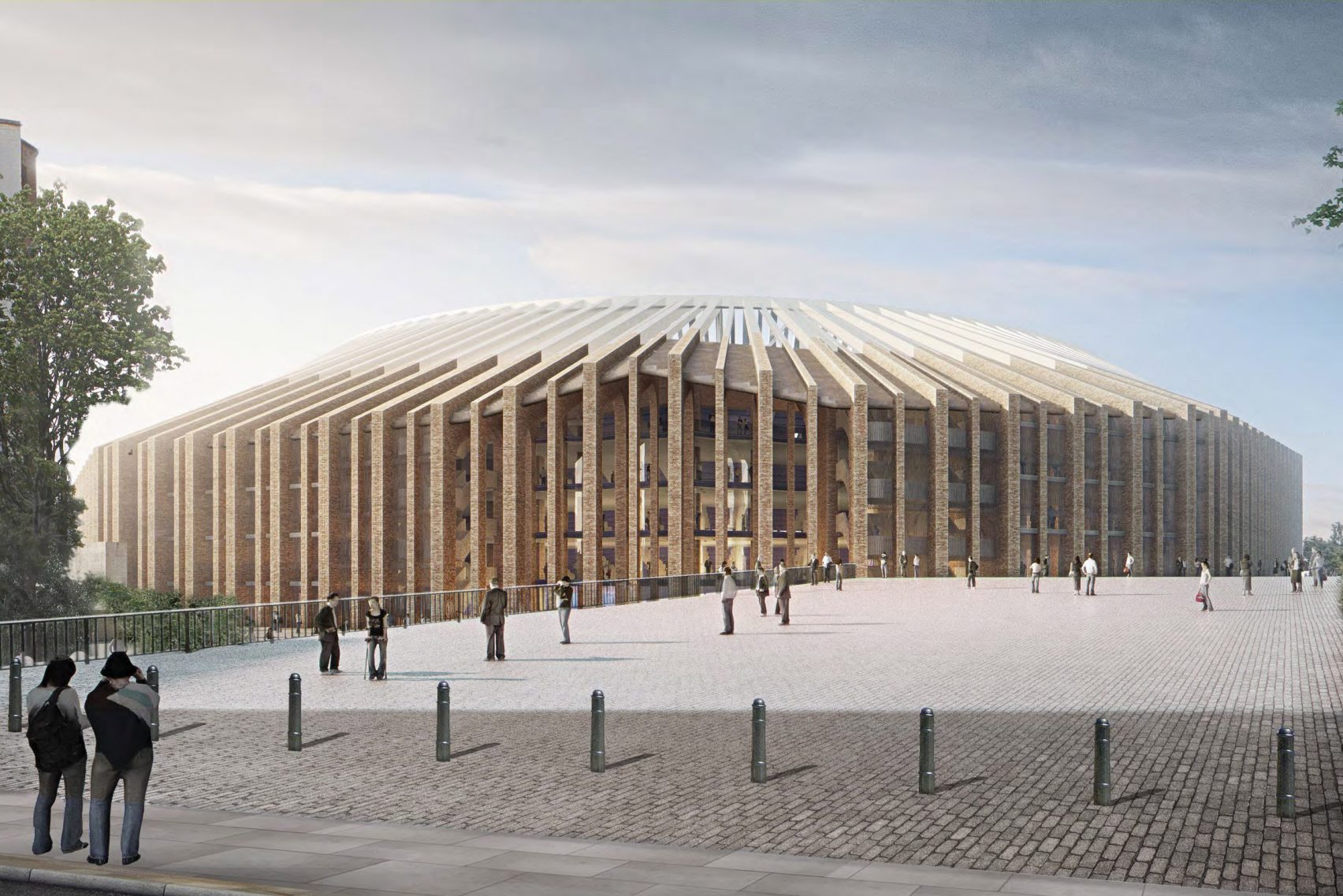
Courtesy of Herzog and de Meuron
John Finlayson, the city’s Head of Planning Regeneration, states in the file papers he has been preparing: “Given the significant level of investment necessary, the club state that they will not be able to implement the development or secure any necessary development financing whilst there remains a risk that the existing injunctive proceedings might succeed.” The file also reads that the redesign would have “significant benefits” on the district and the whole of London.
Courtesy of Herzog and de Meuron
Courtesy of Herzog and de Meuron
Courtesy of Herzog and de Meuron
Courtesy of Herzog and de Meuron
Courtesy of Herzog and de Meuron
Courtesy of Herzog and de Meuron
Courtesy of Herzog and de Meuron


